I "NaNo" and why you should too
![crest-05e1a637392425b4d5225780797e5a76[1]](https://www.sherryrentschler.com/wp-content/uploads/2017/10/crest-05e1a637392425b4d5225780797e5a761.png)
November brings a delightful sensory overload of autumn colors as the landscape trades green for crimson and burnt umber. Delicious aromas tempt our palates with hints of apple and pumpkin pie. And leaves skitter across pavements as winter winds whisper of cooler nights and the approaching holidays. But November for me, and for many millions of other writers, heralds the beginning of something else…something wicked this way comes! National Novel Writing Month or NaNoWriMo.
So, exactly what is this thing that has social media buzzing and writers around the globe stocking up on chocolate, coffee, wine and notebooks?
NaNoWriMo (nanowrimo.org) is a writing challenge: complete a novel of 50,000 words during the month of November. It sounds daunting, right? Novice writers, journalists, bloggers, and established authors from around the world accept this gauntlet toss. “Time to write your novel!” is the cry that echoes from libraries, coffee houses, living rooms, dorm rooms, church basements, kitchen tables, and park benches. I answer the call again this year with classic excitement and this will be my sixth consecutive year.
Today, my hope is to help you feel this same enthusiasm and why you should join me.
Whether you are an author with several books, a studying writer, or just someone who thinks they might like to try writing a novel, there are several lessons and takeaways from this month of self-torture.
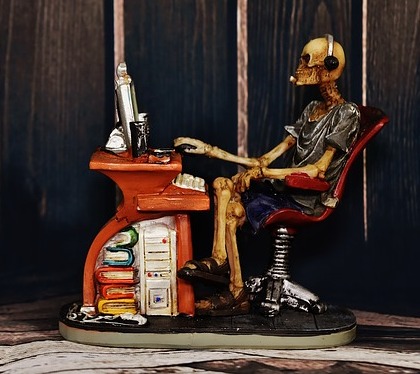
First, by participating in NaNoWriMo, you announce to the world that you have a voice needing expression. Perhaps you like telling short stories or children’s tales. Maybe you prefer sitting up late and thinking of spine chilling ghost stories. Does heart-palpitating romance get your blood racing? Or would you rather be a cop on a beat in 2250 fighting off dangerous robot robbers. Vampire hunters anyone? Or maybe now is the time to tell your grandmother’s story, the one she has shied away from because she’s too humble to recount her youthful exploits. Whatever your genre or reason, whatever your experience or lack of it, NaNo offers everyone a chance to attempt storytelling.
Another joy of NaNo is no one has to see what you write. This isn’t a show and tell. You only need to share your work if you wish. Though the fun of the process is sometimes reading pieces of your work to others (who also read theirs to you) and laughing over particularly funny or out of context moments. After all, you must produce 50,000 words and they don’t always make sense. And they probably are hard won. Because NaNo teaches you to swallow your inner editor and just write. A valuable lesson to learn and carry into your future.
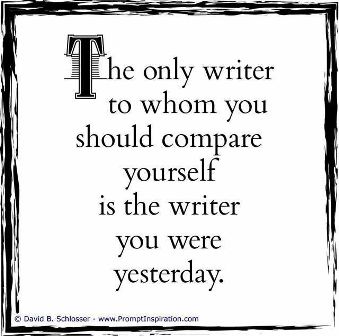
Most writers and participants fear the word count. That’s 1,667 words a day. Although it may not sound very daunting, you soon discover how tricky it is. There are days when you write like crazy. And other days when you can barely find ten good words. Don’t forget your life will keep interrupting you. Kids, family, job, neighbors, your pets, sleep – all things that will be roadblocks. NaNo is nothing if not challenging. To add to the confusion we have holidays and school breaks at the end of the month so better plan for those, too.
Truthfully, I never focus too long on the word count. It’s a goal, and there are rewards and prizes if you achieve it. However, that’s not really the point of NaNo. What you learn is that where there is a will, you make a way. You learn to make time to write. You establish a writing habit, a daily, butt-in-chair attitude. Surprisingly, writing daily gradually becomes a craving and a need, like breathing. It only takes two weeks to make a habit and three weeks to make that habit stick. We’re going to have four weeks to perfect our compulsion. We’re golden!

Most of all, NaNoWriMo provides a chance to interact with other writers, people like you who feel the need to stretch their inky nibs and see what tale sleeps just beneath the muse’s surface.
I mentioned that even established writers participate in NaNoWriMo. Water for Elephants by Sara Gruen and The Night Circus by Erin Morganstern (took her two NaNo’s) were products of this crazy, writing month. My novels (Midnight Assassin, Breaking the Glass Slipper, The Gypsy Thorn, and Time and Blood) all began from an outline and 30 days of NaNoWriMo!

NaNo gives you the chance to discover the writer sleeping in you and the stories you have waiting to explode. You may discover there’s more to you than you ever imagined because you gave yourself a chance to find out. A leap of faith in your storytelling ability.
That’s why I NaNo and why you should, too.
Join me at nanowrimo.org, my username is poetphoenix. I’ll gladly be your writing buddy even if you aren’t in my region (Charlotte, NC). C’mon, we’ll do this together and have some fun! And don’t worry about being alone — millions others, just like us, will be doing it too.
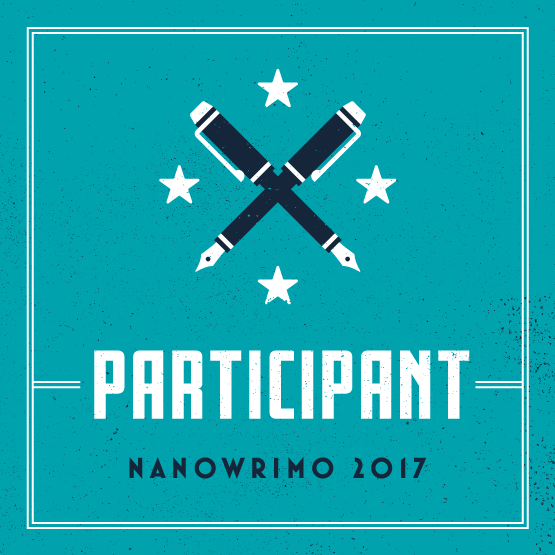
_____________________________________________________
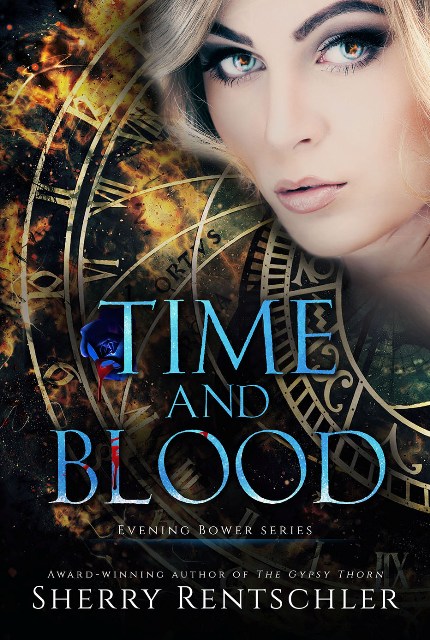 REMINDERS: Time and Blood is available for pre-order here. If you’ve read The Gypsy Thorn, then you are ready for this new paranormal romance series, Evening Bower. Going to be quite a ride folks, so come with me.
REMINDERS: Time and Blood is available for pre-order here. If you’ve read The Gypsy Thorn, then you are ready for this new paranormal romance series, Evening Bower. Going to be quite a ride folks, so come with me.
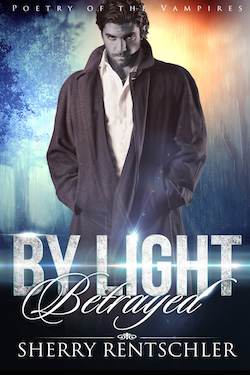
ALSO: The ebook version of By Light Betrayed-Poetry of the Vampires, is only ON SALE for 99cents during OCTOBER. On Nov 1 it goes back up to $3.99. So get a copy now and enjoy some seductive and creepy vampire poems. Just…leave the light on. There is also a preview of Midnight Assassin – A Tale of Lust and Revenge in the back! So 99cents is a great value.
________________________________________
Finally, please join me for my monthly Fireside with the Phoenix Facebook LIVE chat on Saturday, October 28 at 11 a.m. EDT. I’ll be talking NaNo, show you some books to help you with your scary writing, and I’m going to make a Vampire’s Kiss LIVE (that’s a drink). So come for the fun – it’s only about 15 minutes. I will answer questions live, too.
Okay I’m off to stock up on coffee, cream, chocolate, snacks, pencils and paper for the printer. See you next week as we celebrate Halloween with some creepy good fun.(Now go register for NaNo).
As always thank you for dropping by.
I remain, Yours Between the Lines,
Sherry






















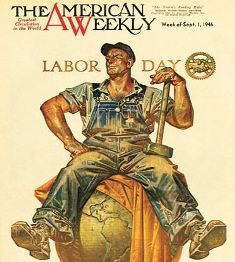


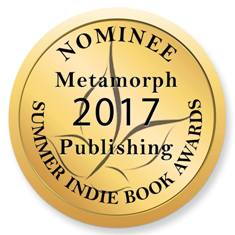 Also, Slipper is nominated in Metamorph Publishing Summer Indie Book Awards, Biography category. Voting is open to all for free. Vote once a day through Sept 11. There are oodles of other fabulous authors who crave your vote too. Please have a look
Also, Slipper is nominated in Metamorph Publishing Summer Indie Book Awards, Biography category. Voting is open to all for free. Vote once a day through Sept 11. There are oodles of other fabulous authors who crave your vote too. Please have a look 